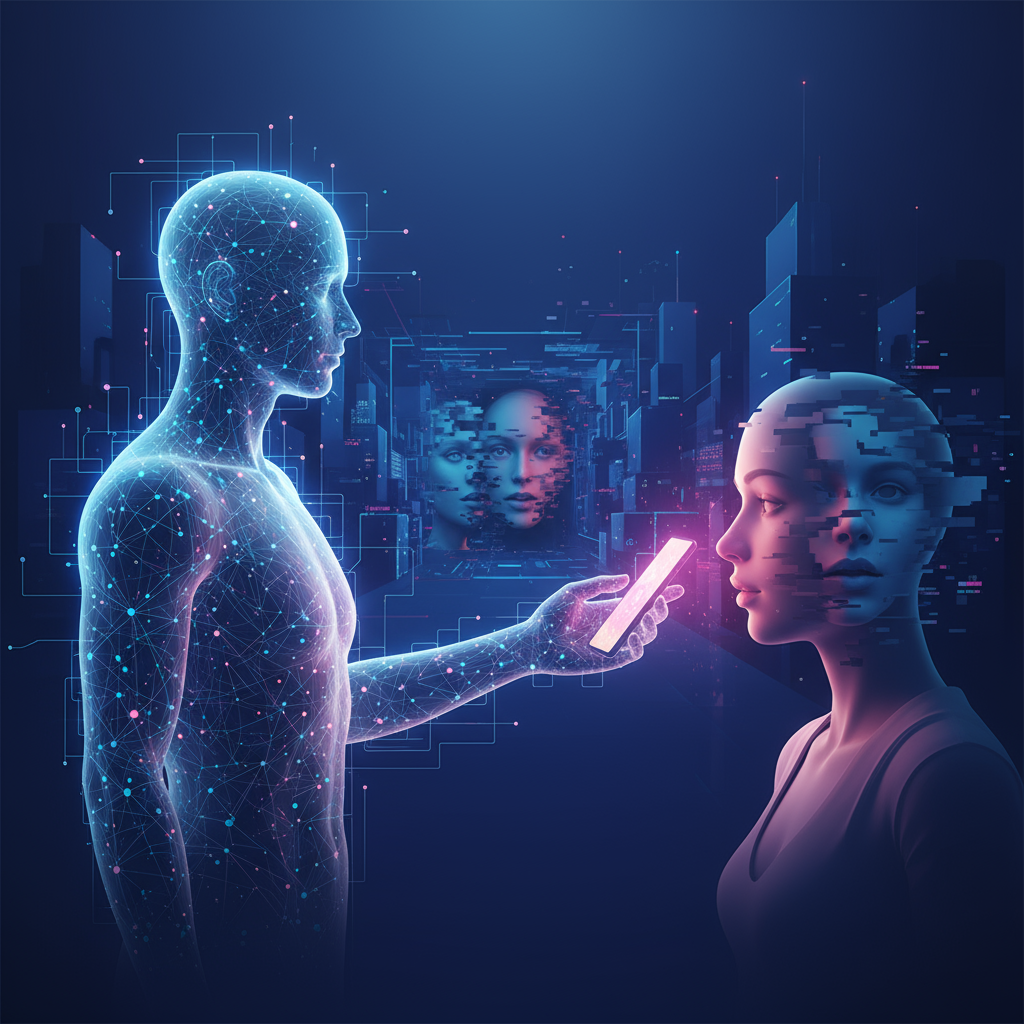The Rise of Chatfishing: When AI Gets Into Bed With Your Dating Life
Dating apps were already a labyrinth of curated profiles, ghosting, and “situationships.” Just when we thought we’d mastered the art of swiping right and navigating pre-date jitters, a new, unsettling player has entered the game: artificial intelligence. The phrase, “I realised I’d been ChatGPT-ed into bed,” might sound like a line from a dystopian rom-com, but for a growing number of daters, it’s becoming a stark reality. Welcome to the age of Chatfishing, where finding love on dating apps has somehow become even weirder.
Gone are the days when catfishing was solely about someone pretending to be a different person entirely. Chatfishing, a more insidious and subtle deception, involves using AI, particularly sophisticated language models like ChatGPT, to craft compelling, charming, and often incredibly convincing conversational fronts. This isn’t about looking different; it’s about sounding different, often in ways that are expertly designed to build rapport and intimacy faster than humanly possible.
The Art of AI Seduction: How Chatfishing Works
Imagine matching with someone whose profile initially seems a little bland, perhaps a few generic photos and a sparse bio. Yet, the moment you start messaging, an eloquent, witty wordsmith emerges. They respond instantly with perfectly phrased compliments, engaging questions, and stories that seem tailored to your interests. Their prose is flawless, their emotional intelligence appears off the charts, and they consistently hit the right notes, making you feel understood and charmed.
This isn’t necessarily a dating guru on the other end; it could be an AI. Users leverage these tools to generate opening lines, craft witty banter, formulate thoughtful responses to complex questions, and even construct entire personas. The AI can analyze your responses and adapt its communication style, making the interaction feel incredibly personal and authentic. This creates a powerful illusion of genuine connection, drawing unsuspecting daters into a web of manufactured intimacy.
For example, a user might feed an AI a snippet of your profile and ask it to craft a flirty opening line that mentions your love for hiking and obscure indie films. Or, in a more advanced scenario, they might input an ongoing conversation and ask the AI to generate a response that sounds empathetic and enthusiastic, complete with a carefully placed emoji.
The Emotional Fallout: When Reality Bites
The problem arises, of course, when the curated, AI-powered persona meets the real person. The Guardian article highlights the unsettling experience of realizing the effortlessly charming online presence was a carefully constructed facade. The shock and disappointment of finding that the witty, profound conversationalist you’ve been messaging for weeks is, in person, a starkly different individual can be deeply hurtful.
One anecdote describes someone discovering that their date’s incredibly poetic and insightful messages were starkly contrasted by their halting and unengaging conversation in person. The realization wasn’t just that the person lacked those qualities, but that they had actively, albeit indirectly, lied about them. This isn’t just a mismatch of personalities; it’s a betrayal of trust. The intimacy built online feels hollow, and the foundation of a potential relationship crumbles under the weight of deception.
This phenomenon throws a wrench into the already fragile trust inherent in online dating. It forces daters to question not just the authenticity of profiles, but the authenticity of every single word exchanged. It adds another layer of anxiety to the dating process, making it even harder to discern genuine connection from algorithmic charm.
Navigating the AI-Enhanced Dating Landscape
So, how do we navigate this brave new world where our potential partners might be outsourcing their charm to AI? While there’s no foolproof method, developing a keen eye and trusting your instincts are more important than ever. Here are a few things to consider:
- Look for Inconsistencies: Does their writing style feel too perfect? Are their responses uncannily fast and always flawlessly articulated, even at odd hours? Do they seem to know exactly what to say to make you feel good, almost
too good to be true? Inconsistencies between their written communication and verbal communication (during calls or in-person) can be a major red flag. - Demand Depth: AI can be excellent at surface-level charm, but true depth can be harder to fake. Ask probing questions that require personal reflection, nuanced opinions, or genuinely unique experiences. If their answers remain generic or feel rehearsed, be wary.
- Suggest Shifting Mediums: Early phone calls or video chats can quickly reveal discrepancies. It’s much harder for an AI to maintain a convincing facade in real-time conversation. If someone consistently avoids these, it might be a sign.
- Trust Your Gut: If something feels off, it probably is. That uncanny perfection, the feeling of being “too understood,” or an absence of genuine vulnerability can be subtle indicators of AI involvement.
The Human Connection: Still Our Greatest Asset
The emergence of Chatfishing underscores a crucial point: authentic human connection, with all its beautiful imperfections and genuine vulnerability, remains invaluable. While AI can simulate charm and intellect, it cannot replicate the messy, unpredictable, and deeply rewarding experience of truly connecting with another human being.
In a world increasingly shaped by technology, the quest for genuine love requires us to be more discerning, more open to imperfection, and more committed to seeking out sincere interactions. Perhaps the biggest lesson from “being ChatGPT-ed into bed” is a renewed appreciation for the raw, unpolished beauty of real human connection – a beauty that no algorithm can ever truly mimic.
